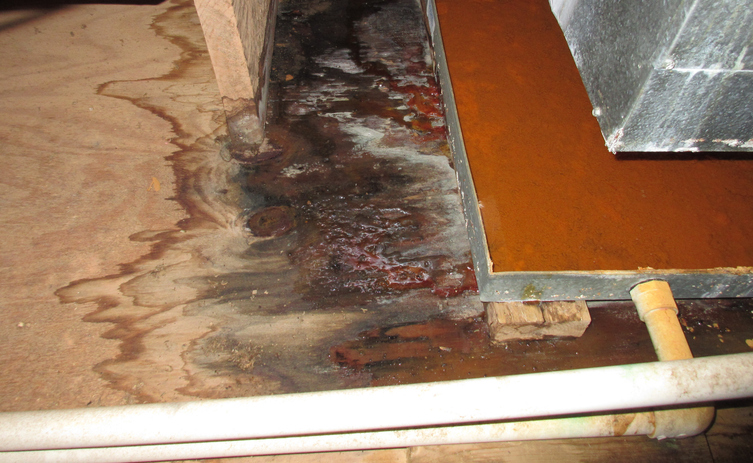Is there water pooling under your air conditioner? It’s never fun to come home and find a wet floor thanks to a leaking AC unit. It’s natural to worry about repair costs and the inconvenience that comes with it. But take a deep breath! The problem might not be as costly or complicated as it seems.
Several common issues can cause an air conditioner to leak, and many of them have straightforward fixes. Below, we’ll cover why this might be happening, steps to prevent further damage, and when it’s time to call in a pro.
Common Causes of Air Conditioning Leaks
To understand where the leaks might come from, it helps to know how your AC system works. Inside the unit, the evaporator coil cools warm air passing over it, which creates condensation. This moisture should drip into a drain pan and exit through the condensation drain line. But if something interrupts this process, you may end up with leaks. Here are the most likely culprits:
1. Cracked or Missing Drain Pan
The drain pan collects moisture from your AC system. If it’s cracked or damaged, water will leak out rather than draining properly. Missing pans are another issue entirely!
Solution: Check for visible cracks or damage. If a replacement is needed, they’re generally inexpensive and easy to install.
2. Improper Installation or Maintenance
If your AC wasn’t installed correctly or hasn’t been regularly maintained, loose fittings or misaligned components could be causing leaks.
Solution: Always hire qualified professionals for installation and schedule regular tune-ups to catch potential issues early.
3. Clogged Air Filters
A dirty air filter restricts airflow, which can cause the evaporator coil to freeze. When it eventually thaws, the resulting excess water may lead to leaks.
Solution: Check and replace air filters every 1–3 months, depending on usage and manufacturer recommendations. This also improves your AC’s efficiency and indoor air quality.
4. Frozen Evaporator Coil
If the evaporator coil freezes, the melting ice can overflow onto your floor. Causes include low refrigerant, poor airflow, or a malfunctioning blower motor.
Solution: Turn off the AC and allow the ice to thaw completely. Replace dirty filters and check airflow. If freezing persists, you may need professional help to address refrigerant levels or mechanical issues.
5. Broken Condensate Pump
If your AC is located in a basement or crawl space, a condensate pump is used to remove water. If the pump fails, water can back up and leak.
Solution: Check for signs of damage or strange noises from the pump. If it’s malfunctioning, call a technician to repair or replace it.
6. Clogged Drain Line
Over time, dirt, debris, and algae can clog the condensation drain line, causing water to back up into the unit and leak.
Solution: Locate the drain line by your outdoor unit and carefully pour a mixture of water and bleach through it to clear blockages. If the clog persists, an HVAC professional can help.
7. Low Refrigerant
Low refrigerant can freeze the evaporator coil. When the coil thaws, excess moisture might build up and leak. Signs of low refrigerant include a hissing sound, lack of cooling, or ice buildup on the coils.
Solution: Contact an HVAC technician to repair leaks, if any, and refill the refrigerant.
How to Prevent Further Damage
If you spot water around your air conditioner, here’s what you should do immediately to prevent additional damage:
- Turn off the AC to avoid potential electrical hazards.
- Clean up any standing water to protect floors and other surfaces.
- If the leak persists, call an HVAC professional to diagnose and fix the issue.
Ignoring a leaking AC could lead to costly repairs—not just for the unit but also for damage to your home.
When to Call a Professional
Some AC problems are best left to the experts. If you’ve tried troubleshooting but the problem persists, or if you’re unsure what’s causing the leak, it’s time to bring in a pro. A trusted HVAC technician can:
- Identify the root cause of the leak.
- Perform necessary repairs or replacements.
- Prevent future leaks with thorough maintenance checks.
Take Action Now to Keep Your AC Running Smoothly
Leaking air conditioners can be a headache, but they’re usually fixable with the proper knowledge and action. By understanding common causes and addressing them quickly, you can protect both your AC system and your home.
If your unit is still giving you trouble, don’t wait! Contact a heating and cooling technician right away. Don’t let water dampen your summer fun!

